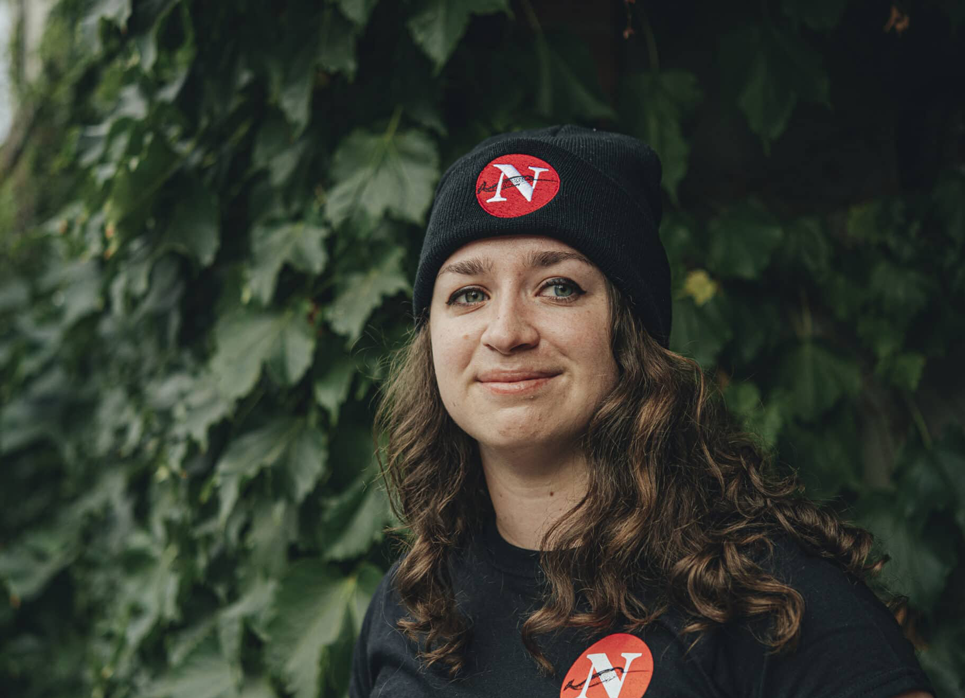Emma McIntosh: Reporter

Name:
Emma McIntosh
Age:
26
Occupation:
Reporter at The Narwhal
Name:
Emma McIntosh
Age:
26
Occupation:
Reporter at The Narwhal
My climate origin story:
My grade 12 year, my school counsellor had told me about this random journalism elective. I had been told to drop a more difficult course and to take an easier one. I had chosen the journalism class because I only had to write about 500 words a month and I thought, that’s easy! But very quickly, it started consuming my life. I had a scary thought one day when I was sitting in the newspaper office, thinking “I wish I could do this every day, all the time.” Within two months of giving it a try, I was sold on it. From there, I just kind of went through the pipeline – journalism school, internships, etc. The second day of my second internship in Calgary, the Fort McMurray wildfires happened. Twenty-year-old me was thrown into covering wildfire evacuations, writing stories and trying to link climate science to what was happening there. A little while after that, I got offered the opportunity to do a project through a university class: an investigative story on the impacts of the oil industry on people. It was called The Price of Oil. I knew that investigative journalism was something I was interested in, but it hadn't really occurred to me that the environment could be a serious investigative beat. But all of a sudden, I’m working on this super serious, in-depth and hard hitting investigation on environmental issues. This is when I thought, this is definitely what I want to do forever. This was happening as the public was also starting to get more interested in climate issues. By being a person who was interested in the same issues, I could fill the existing gap in coverage.
How I keep going when I hit a wall:
Part of it is just sheer stubbornness. Once I commit to a story, I know I'm going to make it happen. Even if it's hard, I will get there. I shift into this other gear, especially closing out an investigation, and I probably feel the most alive in those final days. I become hyper aware, hyper vigilant and super efficient. But what keeps me grounded beyond that is remembering that I’m doing it. I was lucky to grow up with a lot of access to the outdoors and the Great Lakes. And even over my lifetime, I've seen those places change a lot. In some ways better because people are trying harder to preserve them, and in some ways worse due to the cumulative effects of what's been happening for centuries now. Remembering those changes and remembering that it's not just a story but that these are people's lives definitely fuels the hyperdrive that my brain goes into.
A piece of advice:
For me, it's really about making sure that I'm doing everything I can to get people from different perspectives to the table. It's this concept that the Narwhal works with a lot, complicating the narrative. Often the easiest and shortest route to finishing a story is something that highlights the differences between sides rather than attempting to bridge the gap between them. When you do journalism that way, you can often make conflicts worse or make it harder for people to see a resolution. Complicating the narrative is about embracing complexity instead to arrive at a more accurate and interesting story. So for me, it’s a constant process of steering my brain towards doing something that is harder but that ends up being better, like asking more thoughtful questions. Sometimes it's things like “What do you wish the other side understood about you?” Or “What do you think people misunderstand about you?” The other part of it is just trying to convince people who are already predisposed to think that I'm not going to listen to them, that I actually will. Sometimes that makes people angry. I did a profile interview with the Progressive Conservative environment minister who's not a beloved figure in the climate movement. People were upset with me about that. But my real and honest opinion is that we need everybody on all reasonable ends of the political spectrum to be involved in this discussion if we're going to find a way to make this work as a society. Hearing them out and fact checking everybody the same way is an important thing in making sure that our discussions are more complicated and nuanced and therefore more productive. My job is to expose you to different opinions and different ways of thinking. And by convincing people from more sides of an issue to trust me and tell me what they think, hopefully we can deliver that.